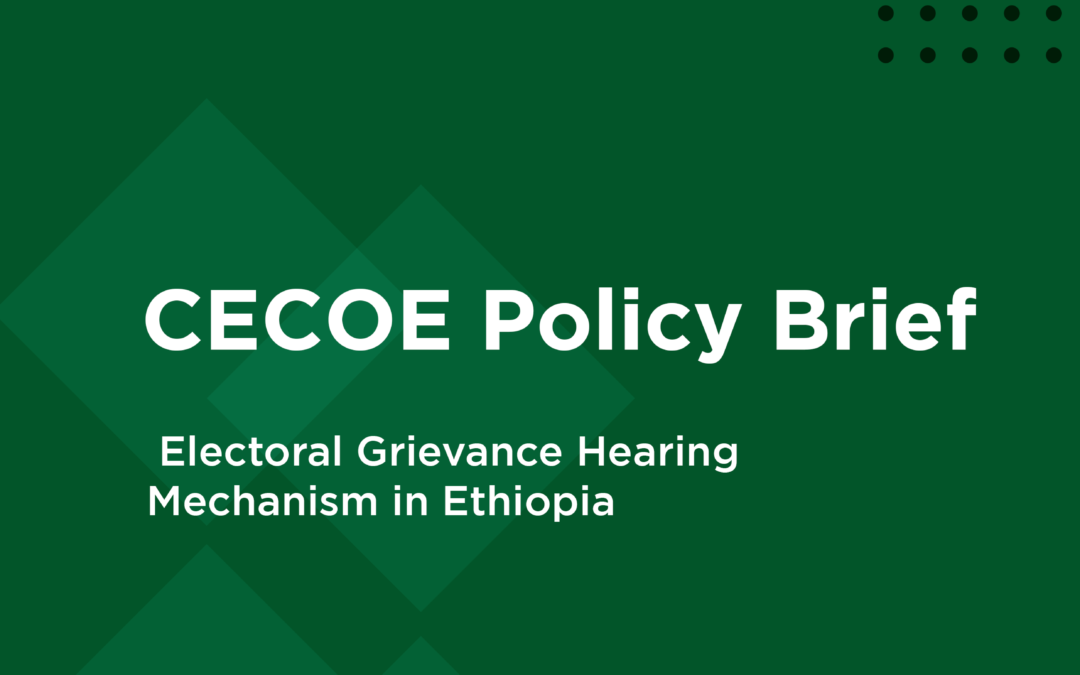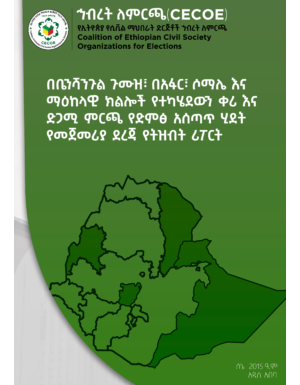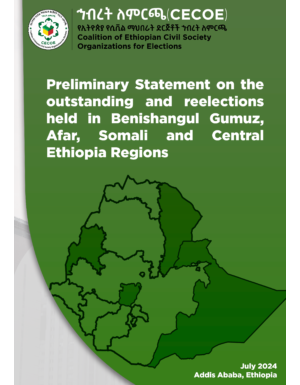Considering the importance of the relationship between the Media and Elections, this policy brief examines the challenges, implications, and prospects in the context of the 6th elections of Ethiopia and media access to various electoral stakeholders. Furthermore, it highlights the need for media outlets to adhere to ethical and journalistic standards and provide balanced coverage of the electoral process. It also underscores the importance of increasing media coverage of voter education and ensuring that all stakeholders, including women are adequately represented in media coverage during election periods.
Based on CECOE’s Media Monitoring Unit report, during the period where the 6th general elections were held, election-related topics were often discussed in the media. However, the media coverage was dominated by other political issues(non-election related). While twelve political parties participated in the election debates, only 5 parties frequently participated in major debates. The degree of obeying journalistic ethics and code of conduct varied from one media outlet to another. Furthermore, most media outlets failed to cover the election campaign in a balanced manner contrary to the stipulations of the media laws and NEBE’s directives. The ruling party, Prosperity Party, received the largest amount of coverage compared to other stakeholders. Additionally, media coverage about women was very scant.
In order to play its rightful role, the Ethiopian media sector must draw lessons from its success stories and work on areas that require improvement to have an increased role in the upcoming elections. Otherwise, its role will be curtailed and remain where it was during the previous election.
| File | Action |
|---|---|
| CECOE Policy Brief Ethiopian Media Accessibility english.pdf | Download |



